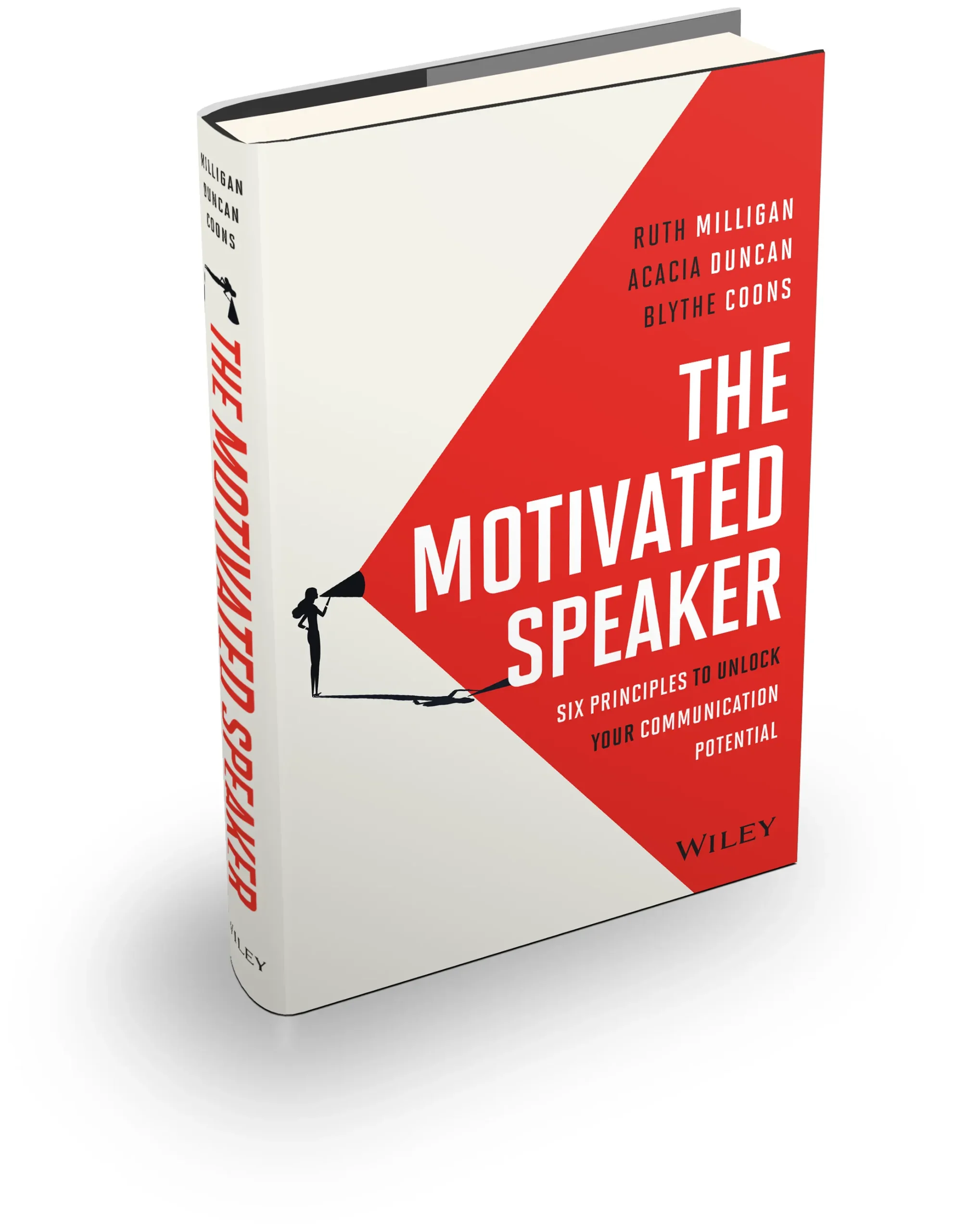Our fourth quarter was a super interesting one, just like the first three of 2018. In short, it was a great year. In fact, our best ever. Thanks to all of our clients who trusted us to help them improve their TED-style presentations, storytelling competency and public speaking impact.
While we coached and trained executives in retail, insurance, data/analytics, banking and more, the specific talks (45 to be exact) that dominated our calendars this quarter were health-related. It is no surprise, seeing that so much innovation and research is dedicated inside health care fields. We are proud that those incredibly smart researchers and leaders are seeking Articulation’s help to translate their insights to smart and curious lay audiences.
In introducing the list below, I’ll also share a content framing and storytelling tip: One practice very important to us is the framing of the question that the speaker will answer for the audience. Not all of the questions start out audience-centric, which is why we have to start there in every single engagement.
I asked my team – Acacia Duncan, Meagan Buren and Kim Goldsmith – to compile all the questions we helped health care industry speakers frame and answer in their talks this quarter. I have not included any institution names, but suffice to say these framing questions come from one of the largest health insurance companies, a very large pharmaceutical company, an academic medical research center, a children’s hospital research center, and the largest mental health system in the country. The organizations are located in Minneapolis, Chicago, Baltimore and of course, Columbus, our home base.
The events at which these presentations were delivered included:
- Quarterly Town Halls
- A Strategic Plan / Capital Campaign Kick off
- A Patient Celebration Week
- Donor Cultivation Events
- An annual TED-Like Internal Summit of Idea Sharing
- An Annual Institute-Wide Research Retreat
- Board Meetings
I realize, the list of questions that we helped speakers to answer is long, but I hope it does two things for you, my reader:
Reinforces how framing the question properly helps shape the presentation. Note where some are large as oceans and others, as narrow as a pot of water. You can imagine how technical some presentations became where others may have stayed in the clouds.
And second… there are a lot of health care questions to be answered out there!
Questions Our Health Care Clients Answered in Q4
- Why are clinical trials important to families?
- How did you deal with fear as a caregiver?
- What was your experience like choosing healthcare providers during your illness?
- How has your experience as a patient/ caregiver impacted your work?
- How is genomics being used here to give better outcomes to patients?
- What are the ways we teach about health in our schools today, and what should the future look like?
- How does a diverse workforce affect the experience of patients and families?
- How can we better care for our surgical patients before the arrive and after they leave the hospital?
- What has my experience with running across America after being diagnosed with Parkinson’s taught me?
- How did I go above and beyond to take care of a patient in need of transportation?
- How can we work with the industry to increase healthy behaviors and health outcomes?
- Can we change the lexicon and the way in which we measure engagement in health interventions?
- For people that are both experiencing poverty and have a disability, how can we coordinate the special services that they need in order to improve health outcomes and quality of life?
- What would a healthcare system look like where doctors are financially incentivized and held responsible for health outcomes?
- In a rapidly changing retail environment, how can we position our business to succeed serving a wide variety of demographics?
- With wildly competing information about how to be healthy, where do you find answers and how can we best apply ‘mechanical sympathy’ principles to our own bodies?
- Where will we take our transplant program in the next 3-5 years?
- What lessons have I learned from trying to manage like others rather than in my own style?
- How can we find cures for cancer through DNA sequencing and immunotherapy?
- Is there a “pixie dust” that can be applied to prevent cell death and how can we benefit from it?
- How can we prevent sudden cardiac death in our schools with an AED?
- Can sharing our data with each other and the government allow us a voice and choice between election cycles?
- How can we advance personalized medicine for cardiac patients through 3D Aorta modeling?
- How is Pediatric Genomic profiling improving patient care?
- Is there any correlation between nasal pharyngeal bacteria and RSV severity?
- What is the trigger for the phases of the neo-vessel development in our tissue engineered graphs?
- Can we utilize math modeling to answer fundamental questions of the pathogenesis of RSV?
- How many adolescents who have a diagnosis of opioid use disorder use their prescribed medications?
- Why and how does the INSR (insulin gene) get split (accelerating cancer) and how can we make it right?
- Can we discover an alternative medicine or drug that treats calcific aorta valve disease?
- Are we able to predict patient deterioration events?
- How can we develop a vaccine for Staph skin infections? What have we learned to date in trying to do so?
- Does temporal lobe epilepsy affect the normal development of white matter tracts in the brain?
- Do breast milk exosomes decrease the incidents of severity of NEC?
- What is the mechanism that causes immune suppression that makes TBI patients at risk for developing nosocomial infections?
- Can a T-cell based vaccine protect against Hep C AND can we use a new model to answer it?
- How can we better prepare families to care for pediatric tracheostomy?
- What are the teens attitudes and perceptions toward engaging in safe driving behaviors as well as engaging in safe driving technology?
- Is the Dux4 protein a viable target treating FSHG (Muscular Dystrophy)?
- How can we reduce P Values with muscle nerve reinnervation for amputees?
- For patients for whom surgery, radiation and chemotherapy are not options for treating cancer, how can immuno-oncology step in to save their lives?
- How does the exercise behavior of a pregnant mom impact the long-term cardiovascular health of her child?
- What impact does exercise have on brown fat in aging adults and their risk factors of cardiovascular disease?
- What can we learn from our surgery pioneers and mentors about how to keep our passion for academic surgery?
- How will we rapidly invest in immuno-oncology in the next five years?
- How will we shift behavioral health research from the bench to the bed, no longer hoping it will make it from the bench to the bed?
- Why is there such a gaping hole in our mental health continuum and what can be done about it?
- How do we remove the stigma from mental health? (And how do we stop saying that S word that actually perpetuates it?)
Thanks for a great year. Enjoy the holiday. We look forward to helping you tell your story in 2019. Contact us to learn how.


